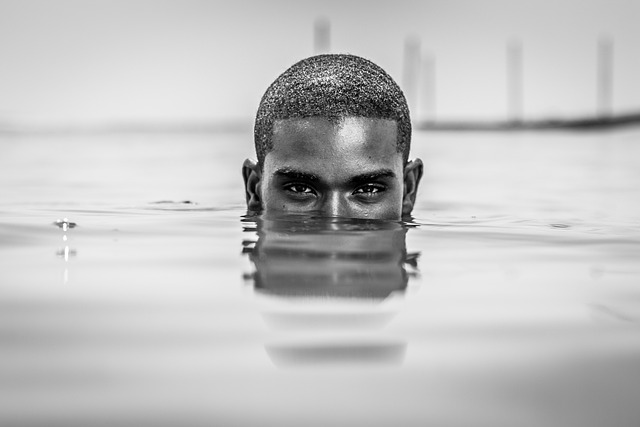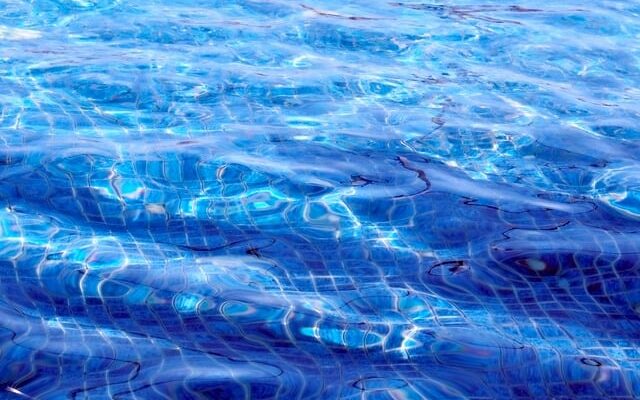Understanding the Effects of Chlorine on Hair Texture
Understanding the Effects of Chlorine on Hair Texture
Chlorine is a commonly used chemical in swimming pools to disinfect water and maintain proper hygiene. While it is essential for killing bacteria and preventing the spread of diseases, it can have detrimental effects on hair texture. If you frequently swim in chlorinated water, it is crucial to understand how chlorine affects your hair and take appropriate measures to protect it.
One of the main effects of chlorine on hair is dryness. Chlorine strips away the natural oils present in the hair, leaving it dry, brittle, and more prone to breakage. This can result in frizzy and damaged hair, making it difficult to manage and style. Furthermore, chlorine can also cause the hair to become rough and tangled.
Another common issue caused by chlorine is discoloration. Chlorine can cause the hair to turn green, especially in individuals with lighter hair colors. This is due to the chemical reaction between chlorine and copper present in the water. The green tint can be quite stubborn and challenging to remove, requiring additional efforts to restore the hair’s natural color.
To combat the harmful effects of chlorine, there are several preventative measures you can take. Before swimming, wet your hair thoroughly with clean, non-chlorinated water to minimize chlorine absorption. Applying a leave-in conditioner or oil can also act as a protective barrier against chlorine. Additionally, using a swim cap can provide an extra layer of protection for your hair.
After swimming, it is essential to rinse your hair thoroughly with fresh water to remove any residual chlorine. Using a clarifying shampoo once a week can also help remove build-up and restore the hair’s texture. Additionally, deep conditioning treatments can provide much-needed moisture and repair damaged hair.
Understanding the effects of chlorine on hair texture is crucial in maintaining healthy and beautiful hair. By taking proactive measures and following a proper hair care routine, you can minimize the damaging effects of chlorine and keep your hair looking its best, even after frequent exposure to chlorinated water.
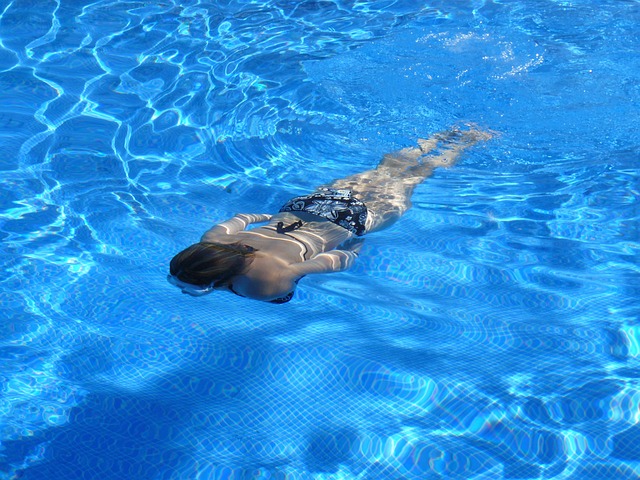
The Role of Saltwater in Making Hair Crunchy After Swimming
The role of saltwater in making hair crunchy after swimming is a common concern for many beachgoers and swimmers. When we think of a day at the beach or the pool, the image of beautiful, tousled beach waves often comes to mind. However, the reality is that saltwater can actually have a negative impact on our hair’s texture.
Saltwater contains high levels of salt, which can have a drying effect on our hair. When our hair comes into contact with saltwater, the salt molecules attach themselves to the hair shaft. This causes our hair to become dehydrated, leading to a rough and crunchy texture. The salt also has a way of stripping away our hair’s natural oils, making it even more prone to dryness and damage.
Additionally, the sun’s rays can further exacerbate the effects of saltwater on our hair. UV rays can cause the hair cuticle to become more porous, allowing more salt to penetrate and further dry out the hair strands. This can result in a disheveled, straw-like appearance that is far from the desirable beachy waves we often envision.
To mitigate the crunchy effects of saltwater on hair, it is essential to take proper care before and after swimming. Before entering the water, apply a leave-in conditioner or a protective product to create a barrier between your hair and the saltwater. This will help to minimize the drying effects and protect your hair’s natural moisture.
After swimming, it is crucial to rinse your hair thoroughly with fresh water to remove any residual saltwater. It is also beneficial to use a deep conditioning treatment or a hydrating hair mask to replenish lost moisture and restore the hair’s softness and shine.
In addition, using a wide-tooth comb or a brush with natural bristles can help to distribute the hair’s natural oils and prevent tangles without causing further damage.
While saltwater can certainly give us a carefree, beachy look, it is vital to take the necessary steps to counteract its drying effects and keep our hair healthy and vibrant.
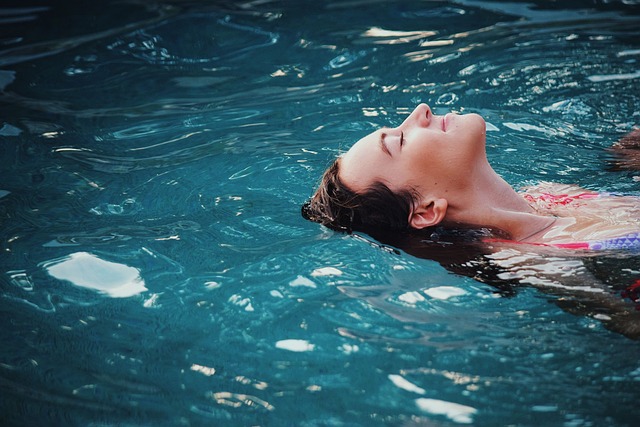
Frequently Asked Questions about Hair Crunchiness after Swimming
Hair crunchiness after swimming is a common concern among individuals who spend time in pools or other bodies of water. This issue can be quite frustrating and may leave your hair feeling rough, dry, and brittle. In order to address this problem, it’s important to understand why hair becomes crunchy after swimming and what steps can be taken to prevent and treat it.
One of the main causes of hair crunchiness after swimming is the presence of chlorine or other harsh chemicals in the pool water. These chemicals can strip the hair of its natural oils, leaving it vulnerable to damage and dehydration. Additionally, the buildup of chlorine can cause the hair strands to become weak and prone to breakage, resulting in a crunchy texture.
To prevent hair crunchiness after swimming, it’s advisable to take a few precautionary measures. Firstly, wetting your hair with clean water before getting into the pool can help minimize the absorption of chlorine. Additionally, using a leave-in conditioner or oil-based hair protectant can create a barrier between your hair and the pool water, reducing the risk of damage.
After swimming, it’s important to rinse your hair thoroughly with clean water to remove any residual chlorine or other chemicals. Using a gentle shampoo and conditioner specifically formulated for swimmers can also help restore moisture and prevent crunchiness. Deep conditioning treatments and hair masks can further nourish and replenish the hair, promoting softness and smoothness.
Overall, hair crunchiness after swimming is a common issue that can be addressed with proper hair care routine and the right products. By taking preventative measures and using nourishing treatments, you can maintain healthy and soft hair even after spending time in the pool.
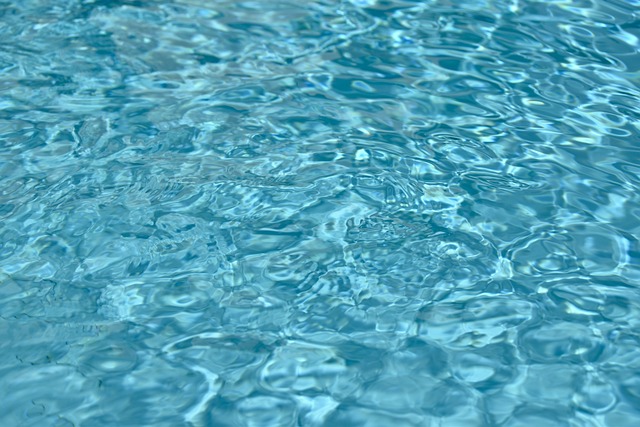
Exploring the Impact of Pool Chemicals on Hair Health
Exploring the Impact of Pool Chemicals on Hair Health: Protecting Your Locks from Damage
When the temperature rises, a refreshing dip in a pool can be just what we need to cool off and have some fun in the sun. However, many pool-goers are unaware of the potential damage that pool chemicals can do to their hair. The chlorine and other chemicals used to keep pool water clean and safe can strip the hair of its natural oils, leaving it dry, frizzy, and brittle.
Chlorine is a powerful disinfectant that keeps pool water sanitized by killing bacteria and other harmful microorganisms. Unfortunately, it also has a detrimental effect on our hair. Chlorine can break down the proteins in our hair, leading to weakened strands that are more prone to breakage. It can also strip away the natural oils that protect and moisturize our hair, resulting in dryness and a dull appearance.
To protect your hair from the damaging effects of pool chemicals, there are several steps you can take. Before entering the pool, wet your hair with tap water or conditioner to help minimize chlorine absorption. Additionally, wearing a swim cap can provide an extra layer of protection. After swimming, rinse your hair thoroughly with clean water to remove any residual chemicals. Using a clarifying shampoo once a week can also help remove chlorine buildup.
In addition to taking these preventive measures, it’s important to replenish the moisture in your hair. Deep conditioning treatments and hair masks can help restore hydration and repair damage. Using leave-in conditioners and hair oils can also help to nourish and protect your hair throughout the day.
By being proactive in protecting your hair from pool chemicals, you can enjoy a refreshing swim without sacrificing the health and beauty of your locks. So, make sure to follow these tips and keep your hair looking and feeling its best all summer long.
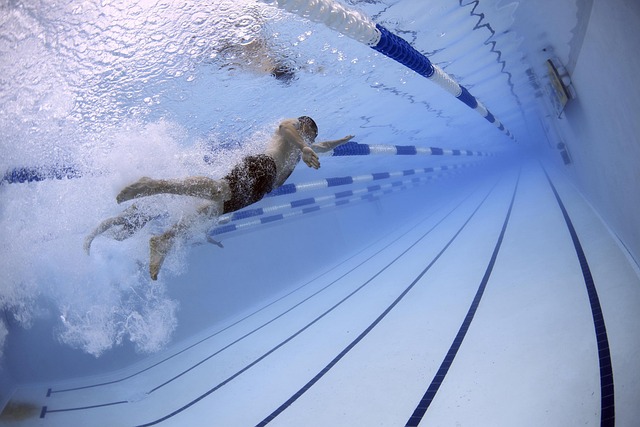
Tips for Preventing and Treating Crunchy Hair from Swimming
Tips for Preventing and Treating Crunchy Hair from Swimming
Swimming is a great way to cool off and stay active during the summer months, but it can leave your hair feeling crunchy and damaged. However, by following a few simple tips, you can prevent and treat crunchy hair from swimming, ensuring your locks remain healthy and beautiful.
1. Pre-Swim Preparation: Before jumping into the pool, wet your hair with clean, fresh water. This will prevent your hair from absorbing excessive chlorine or saltwater, which can cause dryness and damage.
2. Protective Measures: Protect your hair from chlorine and saltwater by wearing a swim cap. If a cap is not your style, apply a leave-in conditioner or hair oil before swimming. This will create a protective barrier between your hair and the water, keeping it moisturized and preventing damage.
3. Rinse Thoroughly After Swimming: Immediately after swimming, rinse your hair with fresh water to remove any residual chlorine or saltwater. Ensure you wash your hair twice to completely eliminate any chemicals.
4. Hydrate and Nourish: After swimming, it’s essential to hydrate and nourish your hair. Use a moisturizing shampoo and conditioner designed for swimmers to restore moisture and repair any damage caused by swimming.
5. Deep Conditioning Treatments: Incorporate regular deep conditioning treatments into your haircare routine. These treatments will help restore moisture balance and repair any damage caused by swimming, leaving your hair soft and smooth.
6. Protect Your Hair from the Sun: Excessive sun exposure can contribute to dry and crunchy hair. Protect your locks by wearing a hat or using a UV-protective hair product when swimming outdoors.
7. Trim Regularly: Regular hair trims are vital for preventing split ends and maintaining healthy hair. Make it a habit to trim your hair every 8-12 weeks to prevent crunchy and damaged ends.
By following these simple tips, you can keep your hair moisturized, healthy, and free from crunchiness caused by swimming. Take care of your locks, and they will continue to shine and look fabulous all summer long.
